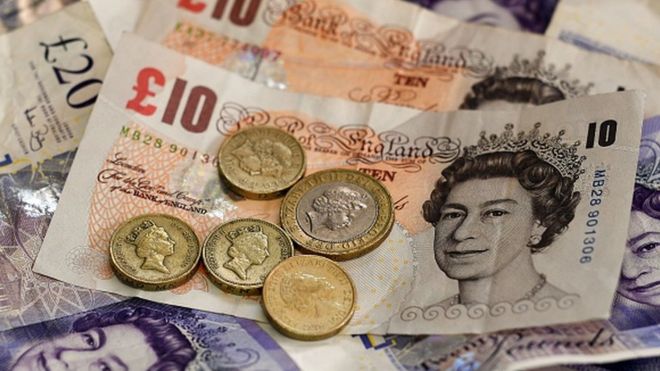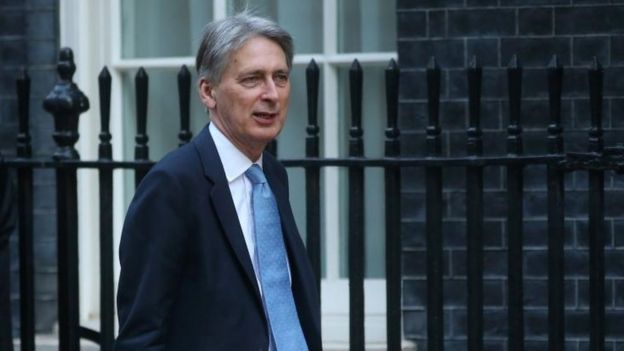Government borrowing fell in November to £12.6bn, down £0.6bn from November 2015, according to the Office for National Statistics

However, the fall was less than analysts had been expecting.
The monthly borrowing figure had been expected to shrink to £11.6bn, according to an economists' poll.
Borrowing for the financial year so far is down on last year. From April to November, borrowing, excluding state-owned banks, fell by £7.7bn to £59.5bn.
Despite the smaller-than-expected fall in November's borrowing figure, economists said the government was on track to meet its less ambitious deficit forecast set out in November's Autumn Statement.
Chancellor Philip Hammond said at the time the government was aiming for a higher budget deficit of £68.2bn for the full financial year, well above predecessor George Osborne's £55.5bn target.

Chancellor Philip Hammond may have to borrow more, just to keep up the interest on his debts
Analysis: Andrew Verity, BBC economics correspondent
The public finances last time round (October) were unexpectedly healthy - with the government having to borrow less than expected. In November that went into reverse.
It's traditionally a tough month for the Exchequer, with more money flowing out than flowing in. But the government (more accurately, the public sector) over-spent its income by more than expected - and therefore had to borrow £12.6bn.
If your yuletide glass is half-full, that's still broadly in line with the projection at the last Autumn Statement that the government would borrow £68bn over the full financial year (to the end of April). And while government spending is growing, tax receipts from VAT, income tax etc are growing faster.
If it's half empty, that £68bn target is already far more than the government projected last March. And we were told in 2010 that austerity would eliminate the deficit by 2015.
The government's ultra-low cost of borrowing, in the last two months, has become more expensive. That might mean Philip Hammond has to borrow more, just to keep up the interest on his debts.
If that gets worse, the chancellor may want to drain his glass and forget about the public finances.
Capital Economics economist Scott Bowman expects borrowing for the full year to "come in close" to the government's current forecast.
"[Tax] receipts growth has been on a slight upward trend since May - adding to the evidence that the economy has held up well following the vote to leave the EU," he added.
Mr Hammond has already said he would not seek to balance the government's finances by 2020.
Instead, he plans to put more investment into areas such as infrastructure.
However, accountancy industry body the ICAEW said the high borrowing figure demonstrated "the vital need for stronger financial management expertise at the heart of government".
"His [the chancellor's] promise to supply more funding for infrastructure projects across the country has the potential to inject some much-needed confidence into the UK, however these projects can only be successfully delivered if he is supported by a strong team that has the right mix of professional, financial and commercial skills," said ICAEW public sector director Ross Campbell.
No comments:
Post a Comment